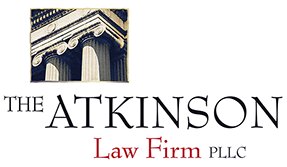Best Truck Accident Lawyers in North Carolina
Share your needs with us, get contacted by law firms.
Free. Takes 2 min.
Or refine your search by selecting a city:
List of the best lawyers in North Carolina, United States
About Truck Accident Law in North Carolina, United States
Truck accident law in North Carolina deals with legal claims and cases that arise when commercial trucks, such as semis, tractor-trailers, or delivery vehicles, are involved in crashes. These accidents often result in severe injuries or fatalities due to the size and weight of trucks. North Carolina law provides guidelines on who may be liable after a truck accident, what types of compensation may be available to victims, and the process for pursuing a claim. Unlike ordinary car accidents, truck accident cases frequently involve complex issues of federal and state regulations, insurance policies, and multiple at-fault parties.
Why You May Need a Lawyer
Many people seek legal help after a truck accident because these cases often involve serious injuries, significant property damage, and complicated legal questions. Some situations where it is important to talk to a lawyer include:
- When you have suffered severe injuries and need help obtaining fair compensation for medical expenses, lost wages, and pain and suffering.
- If it is unclear who is at fault, as multiple parties could be responsible, including the truck driver, trucking company, manufacturer, or freight loader.
- When dealing with insurance companies that try to delay, minimize, or deny your claim.
- If a loved one has died in a truck accident and you may have grounds for a wrongful death lawsuit.
- When the accident involved hazardous materials or violations of federal trucking regulations.
- If the trucking company or their insurers are pressuring you to accept a quick settlement that seems inadequate.
A qualified truck accident attorney in North Carolina can help you investigate the accident, gather evidence, deal with insurance companies, and, if necessary, file a lawsuit to protect your rights.
Local Laws Overview
North Carolina has several laws and regulations that are especially important in truck accident cases:
- Contributory Negligence - North Carolina follows a pure contributory negligence standard. This means that if a victim is found even one percent at fault for the accident, they may be barred from recovering any compensation. This makes it critical to prove fault on the part of the truck driver or other parties.
- Statute of Limitations - In most cases, you have three years from the date of the accident to file a personal injury claim, and two years for wrongful death.
- Federal and State Trucking Regulations - Truck drivers and companies must comply with detailed rules regarding driving hours, maintenance, licensing, cargo loads, and more. Violations of these rules can establish liability.
- Minimum Insurance Requirements - Commercial trucks are required to carry much higher liability insurance than passenger vehicles, which can impact available compensation.
Understanding and navigating these laws can be complicated without legal assistance, especially against large trucking corporations and insurers.
Frequently Asked Questions
What should I do immediately after a truck accident?
Call 911 to report the accident and seek medical attention, even if injuries are not obvious. Gather information from all parties involved, take photographs, and collect witness contact details if possible. Avoid speaking about fault and contact a lawyer as soon as possible.
How is liability determined in North Carolina truck accident cases?
Liability is based on showing that a truck driver, trucking company, or another party acted negligently. This could involve breaking traffic laws, violating safety regulations, or failing to maintain the vehicle. Evidence, such as police reports, driver logs, and black box data, is crucial.
Can I recover compensation if I was partly at fault?
No. North Carolina’s contributory negligence law prevents you from recovering damages if you are found to be even slightly at fault for the accident.
What types of compensation may be available?
Victims may seek compensation for medical bills, lost wages, loss of earning capacity, pain and suffering, property damage, and, in fatalities, wrongful death damages.
How long do I have to file a lawsuit after a truck accident?
You generally have three years from the date of the accident to file a personal injury lawsuit. Wrongful death claims must be filed within two years.
Are truck accident cases different from car accident cases?
Yes. Truck accident cases usually involve more severe injuries, more insurance coverage, and additional regulations. Multiple parties could be liable, making these claims more complex to investigate and prove.
Who can be held responsible for a truck accident?
Potentially liable parties include the truck driver, the trucking company, cargo loaders, truck manufacturers, and maintenance providers, among others.
Will my case settle or go to trial?
Many truck accident cases are settled through negotiation with insurance companies, but some do proceed to trial if a fair settlement cannot be reached.
What evidence is important in a truck accident case?
Key evidence can include police crash reports, photos of the scene, witness statements, trucking company records, driver logs, electronic control module (black box) data, and maintenance or inspection history.
How much does it cost to hire a truck accident lawyer in North Carolina?
Most truck accident lawyers work on a contingency fee basis, meaning they only get paid if they recover compensation for you. The fee is usually a percentage of your settlement or award.
Additional Resources
Here are some resources and organizations that can help individuals involved in truck accidents in North Carolina:
- North Carolina Department of Transportation (NCDOT) - Provides information on traffic laws and commercial vehicle regulations.
- North Carolina Division of Motor Vehicles (DMV) - For accident reports and commercial driver licensing information.
- North Carolina Bar Association - Offers a lawyer referral service for those seeking legal assistance.
- Federal Motor Carrier Safety Administration (FMCSA) - Oversees federal trucking regulations and safety standards.
- Victim support groups and nonprofit legal aid organizations for those needing additional assistance.
Next Steps
If you have been involved in a truck accident in North Carolina, here are the steps you should take:
- Seek medical attention and ensure your injuries are properly documented.
- Report the accident to the police and obtain a copy of the crash report.
- Gather as much evidence as possible, including photos, witness information, and details regarding the truck and trucking company.
- Contact a qualified truck accident lawyer to discuss your case and get guidance on your legal rights.
- Avoid making statements to insurance companies or accepting settlements before speaking to an attorney.
- Follow all medical and legal instructions to protect your health and your claim.
A knowledgeable attorney can help you understand the complexities of truck accident law in North Carolina and guide you toward the best outcome for your case.
Lawzana helps you find the best lawyers and law firms in North Carolina through a curated and pre-screened list of qualified legal professionals. Our platform offers rankings and detailed profiles of attorneys and law firms, allowing you to compare based on practice areas, including Truck Accident, experience, and client feedback.
Each profile includes a description of the firm's areas of practice, client reviews, team members and partners, year of establishment, spoken languages, office locations, contact information, social media presence, and any published articles or resources. Most firms on our platform speak English and are experienced in both local and international legal matters.
Get a quote from top-rated law firms in North Carolina, United States — quickly, securely, and without unnecessary hassle.
Disclaimer:
The information provided on this page is for general informational purposes only and does not constitute legal advice. While we strive to ensure the accuracy and relevance of the content, legal information may change over time, and interpretations of the law can vary. You should always consult with a qualified legal professional for advice specific to your situation.
We disclaim all liability for actions taken or not taken based on the content of this page. If you believe any information is incorrect or outdated, please contact us, and we will review and update it where appropriate.
Browse truck accident law firms by city in North Carolina
Refine your search by selecting a city.

















